Almost half of DMV residents are struggling or suffering in their overall well-being, according to the latest Voices DMV Community Insights Report.
The report - which was released this week -- provides an update on the state of our region, including key regional challenges and insights from a comprehensive survey conducted by The Community Foundation in partnership with Gallup and its Center on Black Voices.
“This is not just data for data’s sake,” shared Tonia Wellons, President & CEO of The Community Foundation. “This data is a reflection of what we can do better – what our community requires of us. It provides a roadmap for how we can shift what we’re doing – as funders and as community and nonprofit partners -- to better meet their needs.”
First launched in 2017, VoicesDMV is a community engagement initiative designed to help philanthropy, community leaders, policymakers, and others better understand the diverse experiences of the people who live and work in the Greater Washington region.
This year’s report marks the third iteration of VoicesDMV. Data from the previous iteration was gathered just weeks prior to the COVID-19 pandemic that exacerbated pre-existing socio-economic disparities across the region.
Nearly four years later, the latest VoicesDMV Community Insights Report shows that many of those disparities are still prevalent – and in some cases have widened further in the aftermath of the pandemic.
According to the report, at some point during the past year, half of residents in the DMV worried about not being able to pay their rent or mortgage. Meanwhile, among Black and Hispanic residents, more than 1 in 3 have run out of money for food. Click here to view the Full Report
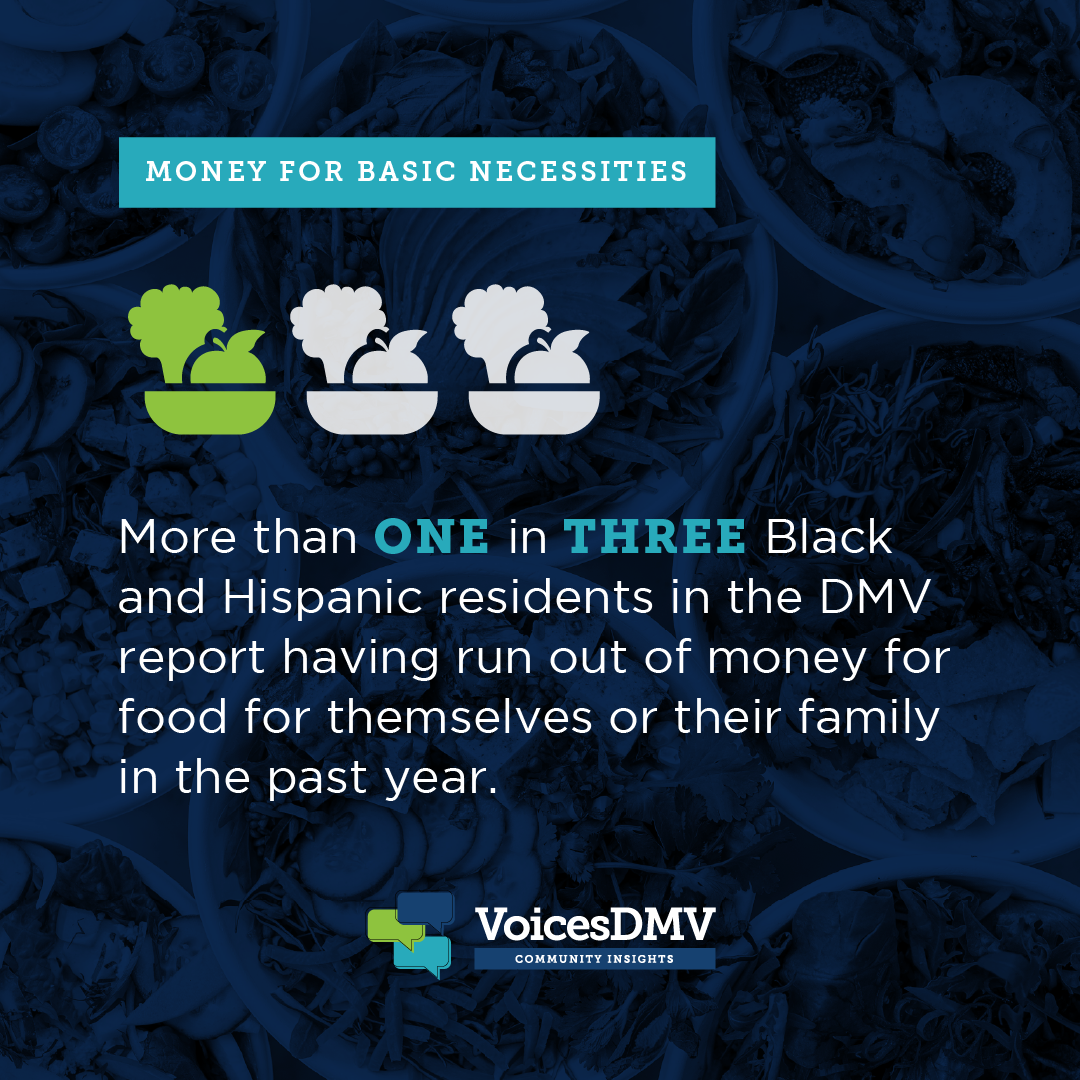

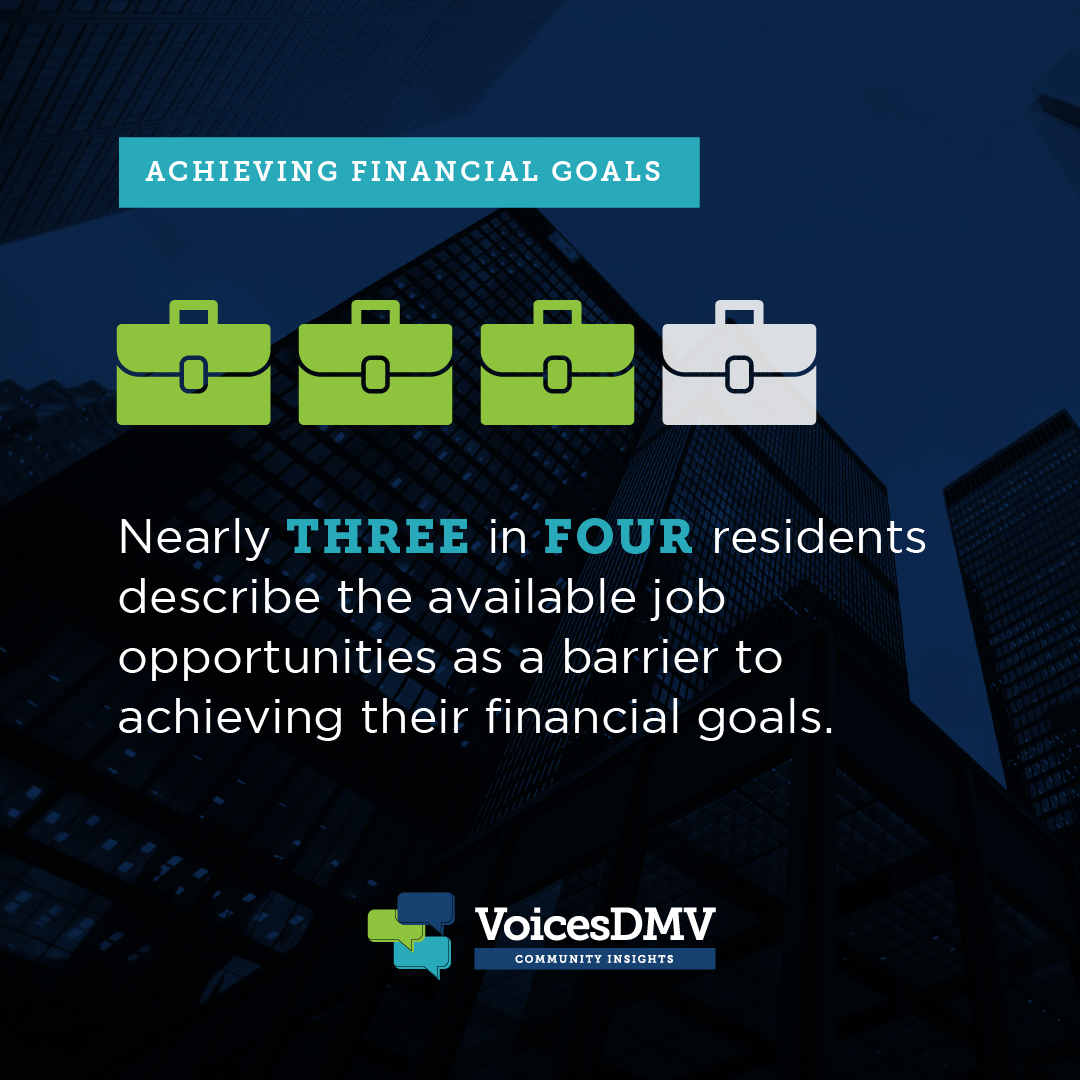


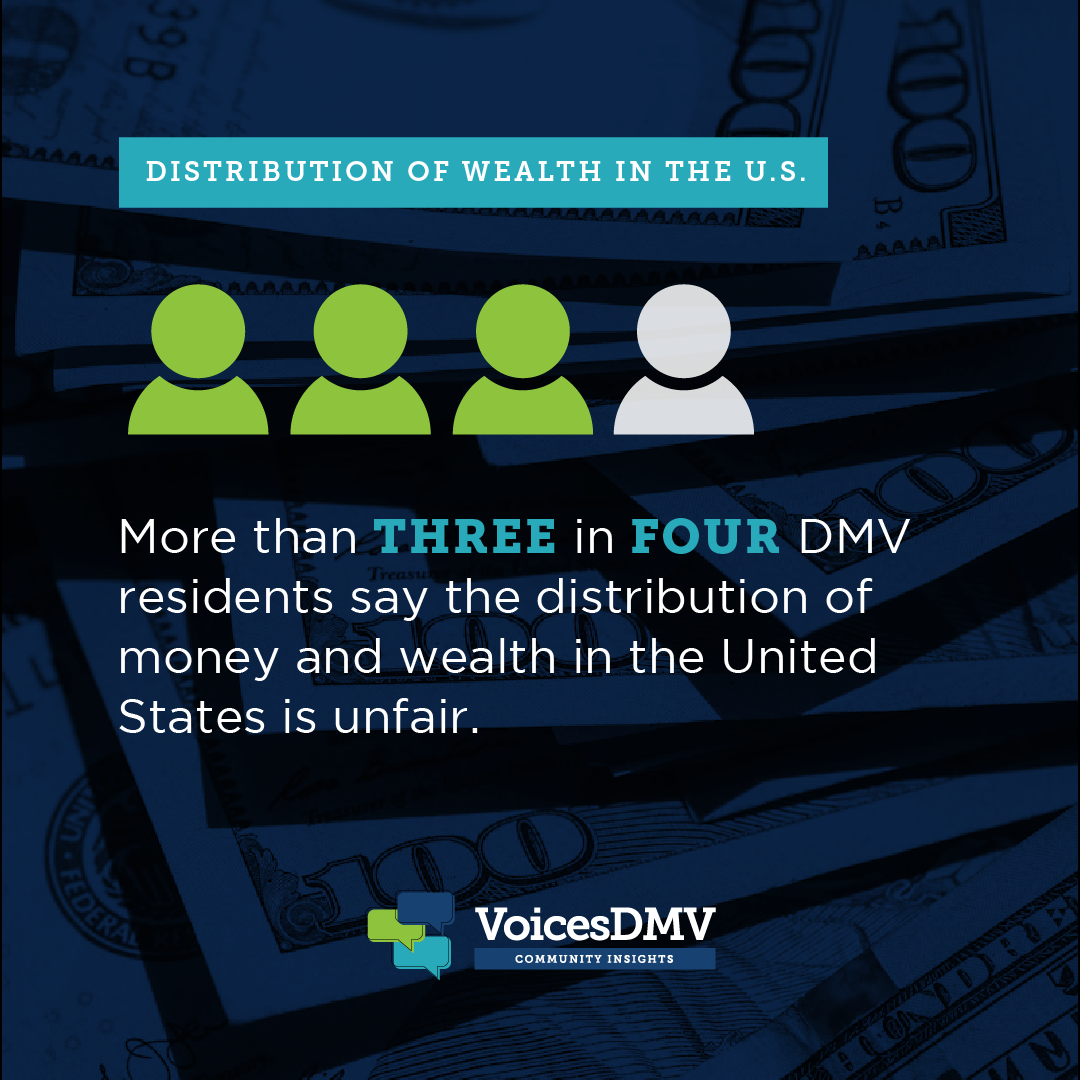


The report surveyed more than 2,800 residents across DC, Maryland, and Virginia – with an oversampling among communities of color across the region, including several neighborhoods identified by The Community Foundation as priority neighborhoods.
“This report is important because we need to make sure we’re all singing from the same sheet of music,” Camille Lloyd, Director of the Gallup Center for Black Voices shared at a launch event for the report. “No matter how well we’re doing as a region, if we don’t understand who’s being impacted negatively – and how they’re being impacted – we won’t know who is being left behind.”
Lloyd provided insights on the survey’s methodology and moderated a panel discussion with members of The Community Foundation’s Community Investment team about key takeaways from the report.
“COVID really changed the conversation about ‘work’ and the employment space as we know it,” Dawnn Leary, Chief Program Officer at The Community Foundation shared. “On a philanthropic level, it’s forced us to re-examine how we invest in workforce development and where.”
According to the latest report, nearly three in four residents described available job opportunities as a barrier to achieving their financial goals. At the same time, residents also identified a number of critical barriers to finding and keeping those jobs including access to public transportation, credit history, and access to childcare.
Leary is the chief facilitator of Reimagine – formerly the Greater Washington Workforce Development Collaborative. The initiative recently shifted its focus following a robust listening and learning discovery process with community members about the needs of the community – many of which were outlined in the report.
“When we talk about impact, we need to get out of the tendency to only focus on programmatic outcomes,” Leary explained, outlining one of the reasons for the shift. “Instead, we need to prioritize how we are responding to the actual needs on the ground.”
Jennifer Olney, Senior Community Investment Officer with the Partnership to End Homelessness shared how her initiative is advocating for more funding to meet one of the most urgent of those needs – access to affordable housing.
Olney shared how the growing number of residents struggling to pay rent has played out across the DMV, as the number of people experiencing homelessness in our region increased by 12% last year. This statistic had actually decreased during the pandemic, but has since reversed course as COVID relief and rental assistance programs expired and more residents find themselves struggling to get by.
“Like many challenges facing our community, homelessness is one issue where the public sector needs to be at the table and make the necessary investments,” Olney shared. “That’s why it’s critical for us to empower community members and those with lived experience and ensure that their voices and advocacy are heard.”
“We need to constantly ask ourselves how are we supporting and investing in the agency of people,” Leary added. “Not just listening to their voices and providing input, but finding ways to step back and let those who are closest to these issues lead.”
“Those who are living these experiences know what the solutions are – what they need is investment and support. They need to be the ones that are engaged in driving change in their community; not just philanthropy.”
“As you read this report, don’t just take it as another input for data,” Leary concluded. “Think about how this insight will change the way you work. How can you use it to change you interact with the community you serve.”
Following the panel discussion with members of the Community Investment team, Duc Luu, Director of Sustainability Initiatives/Journalism at the Knight Foundation moderated a panel discussion that dived deeper into other aspects of the report – specifically those related to the sense of belonging, social connections, and resident voice.
“A sense of belonging is more than just being seen or feeling included,” shared Vanessa Mason, Principal on the Building Cultures of Belonging team at Omidyar Network. “It means having a voice and an opportunity to use it to make demands on the society that they are a part of.”
“Belonging is more than aspirational,” Dr. Wendy Ellis, Director and Founder of the Center for Community Resilience at George Washington University added. “It’s something that is real and is measurable.”
According to Gallup and the VoicesDMV Community Insights Report, a sense of belonging is the biggest predictor of whether residents are thriving. It also represents one of the biggest areas for improvement for our region – especially as residents look to their future. Just over half of residents expect living conditions in their communities to be ‘about the same’ five years from now, while about one in three expect them to them to be worse.
“We can’t create belonging for anyone else,” Dr. Ellis shared. “We can only create the conditions for belonging. That requires intentionality and investments that foster social cohesion – which over time develops into social capital and hope for a brighter future.”

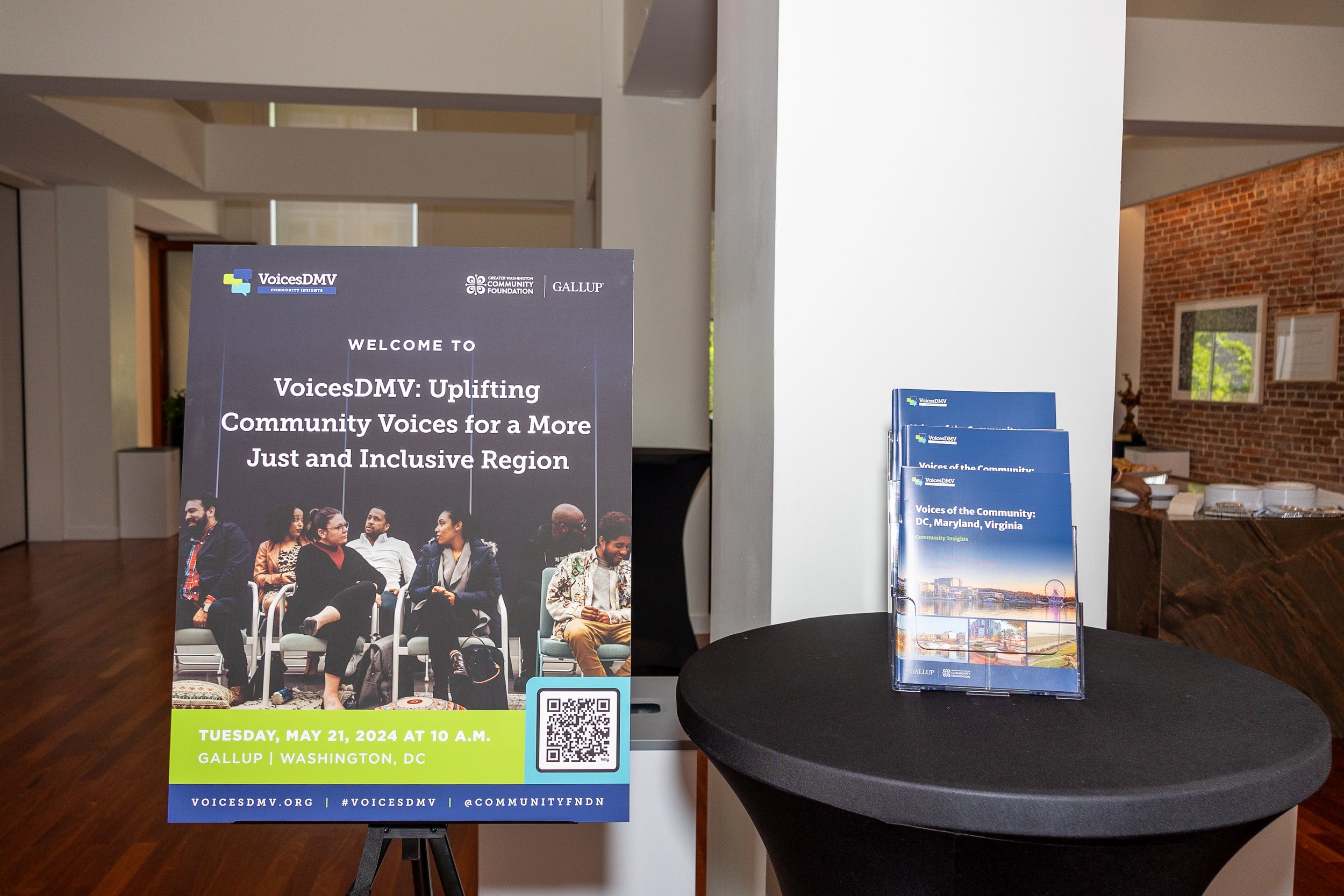
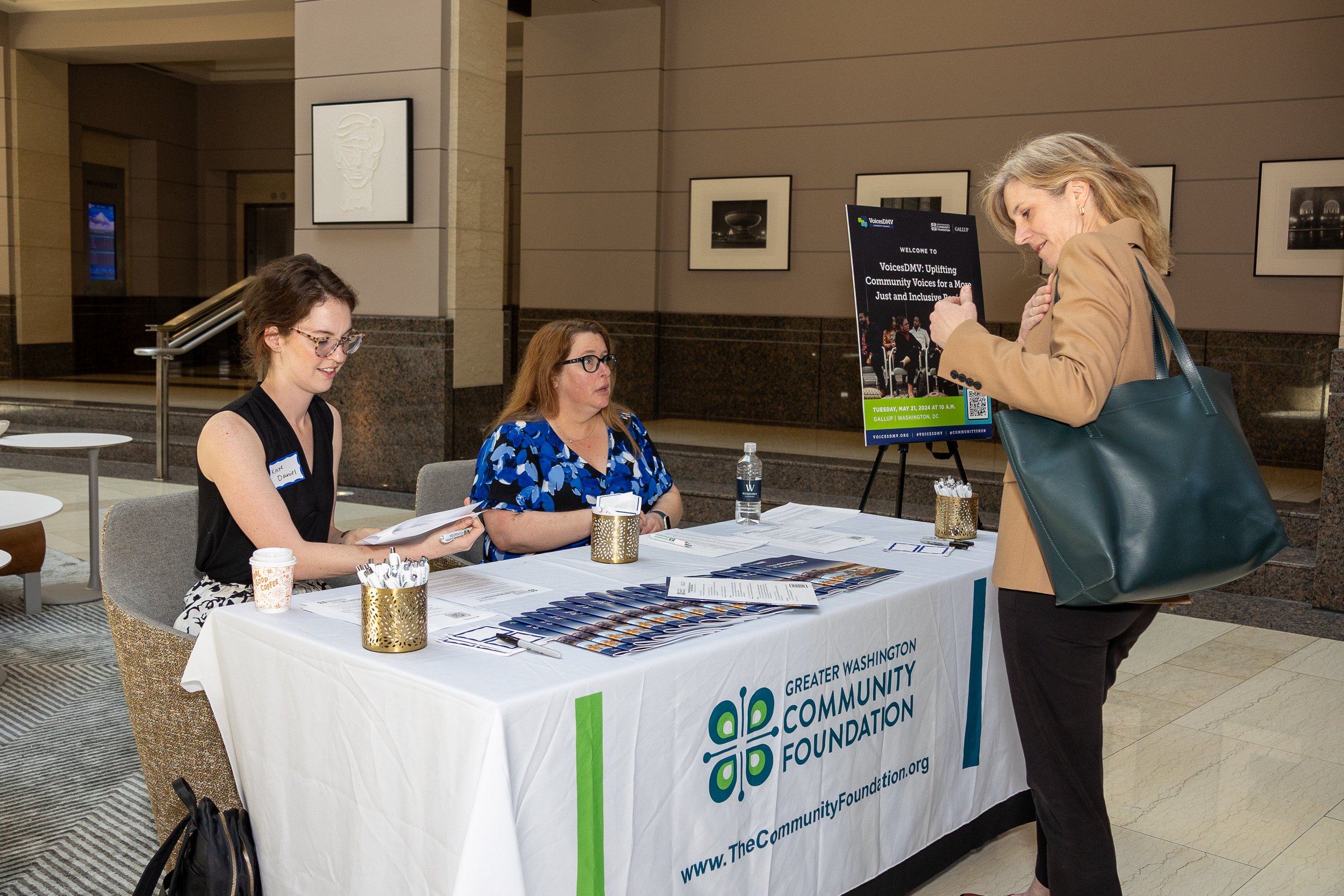

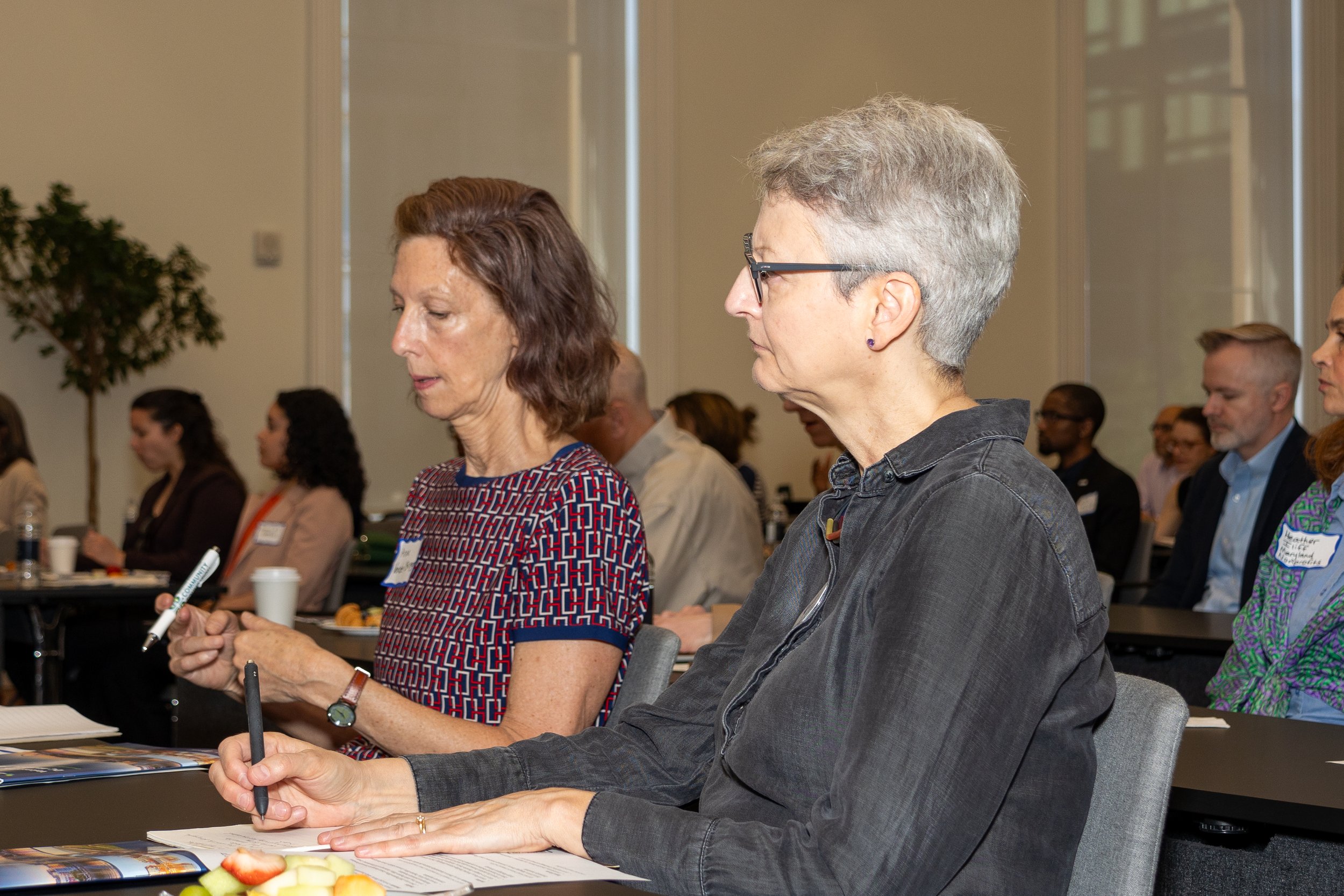
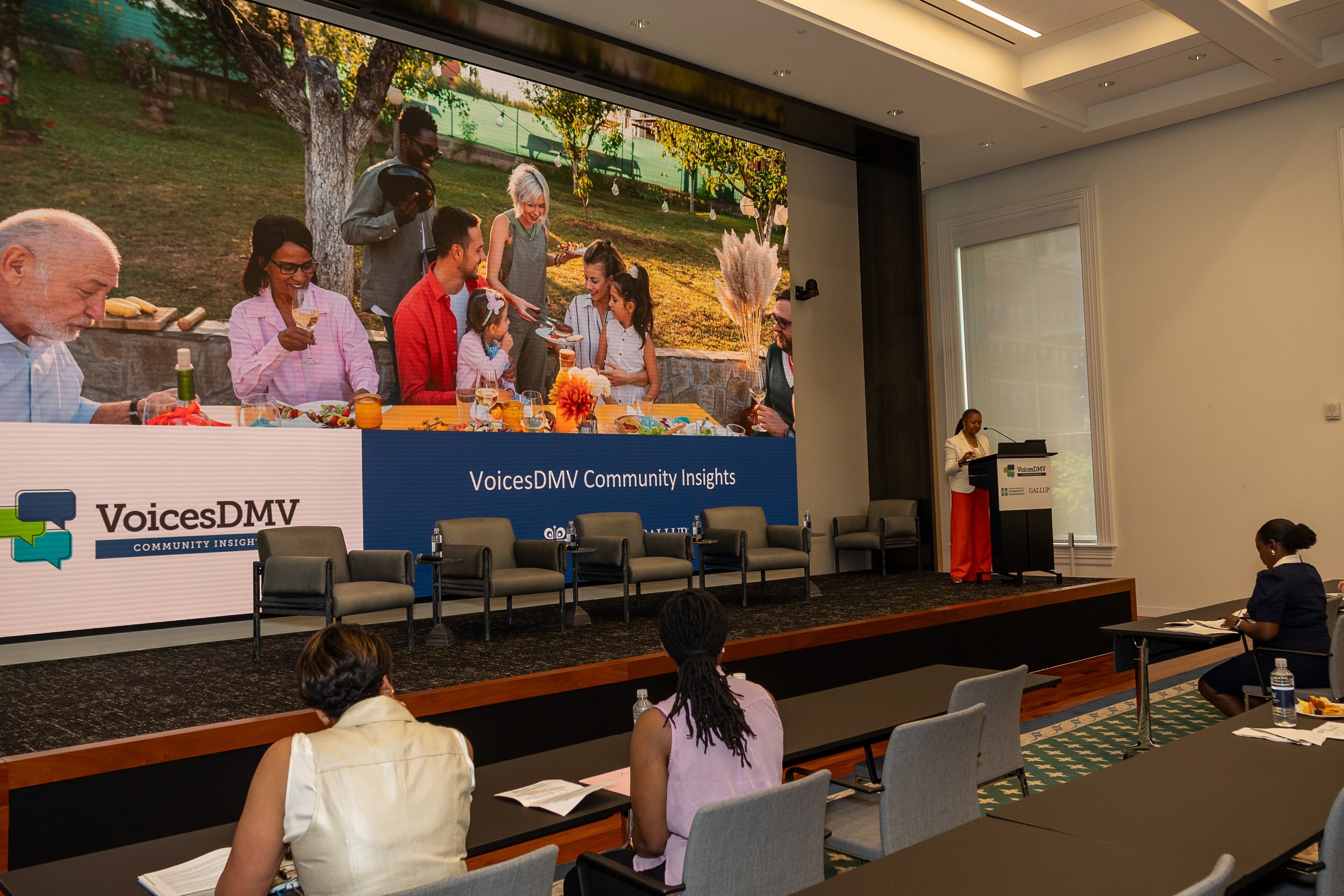


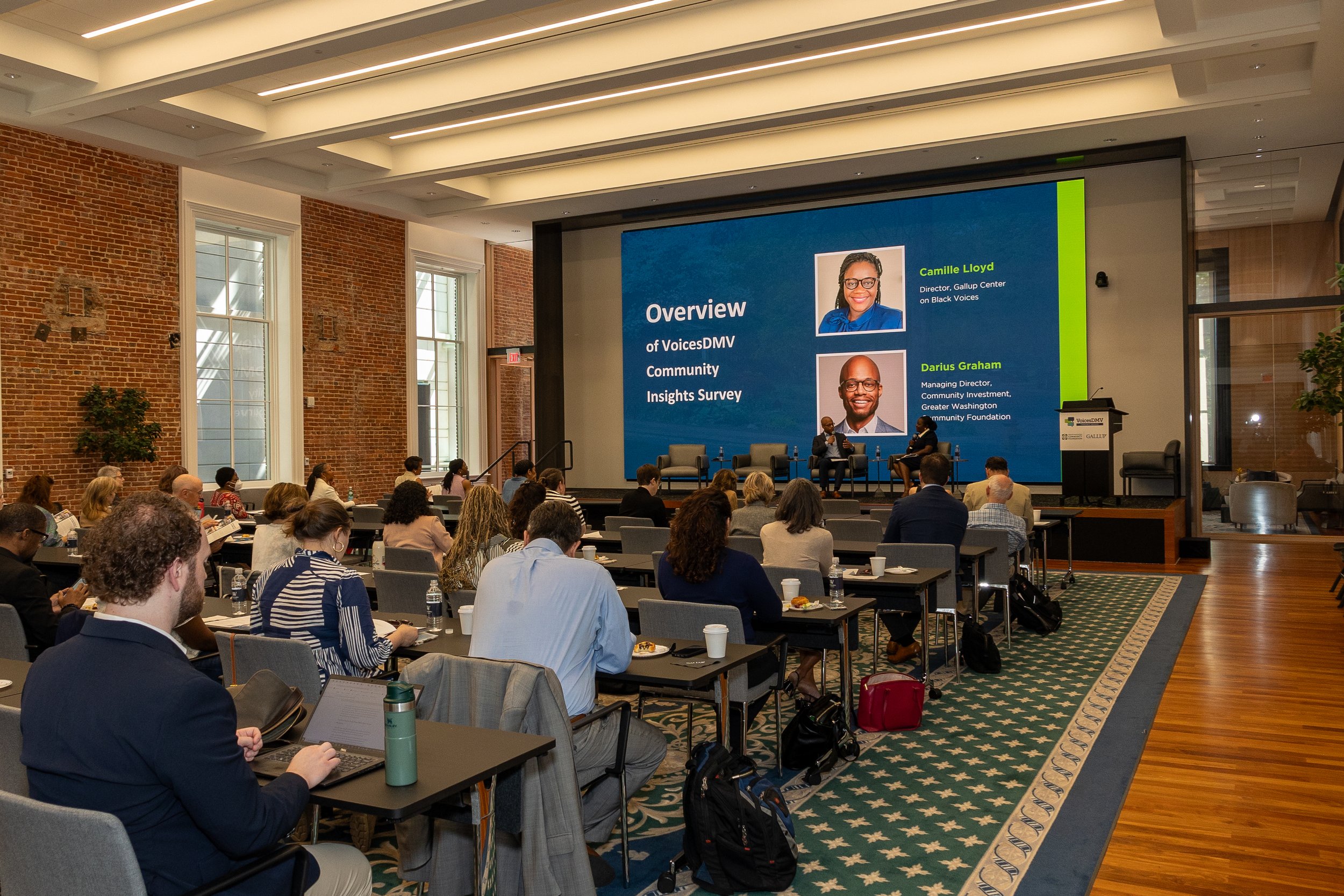






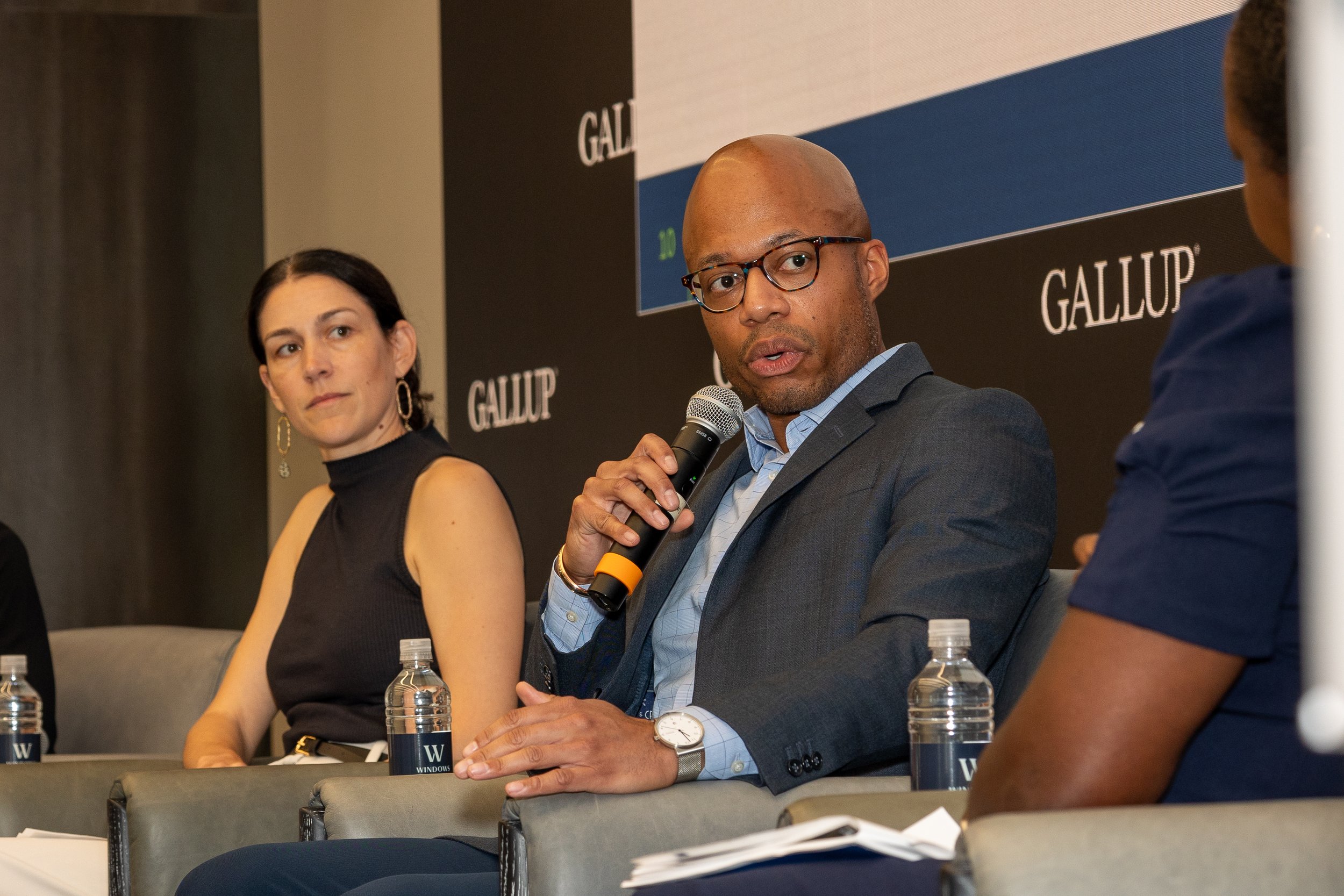
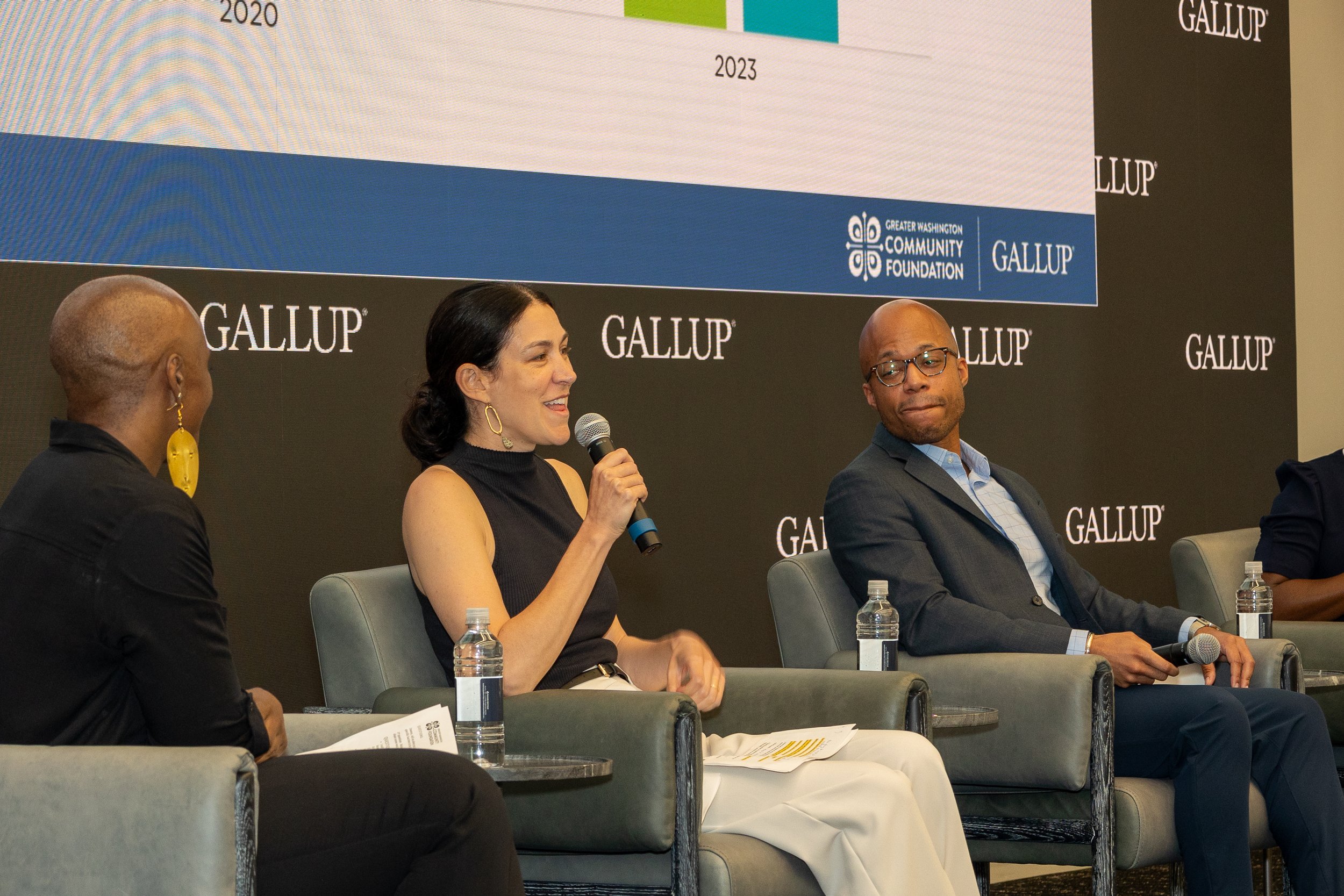

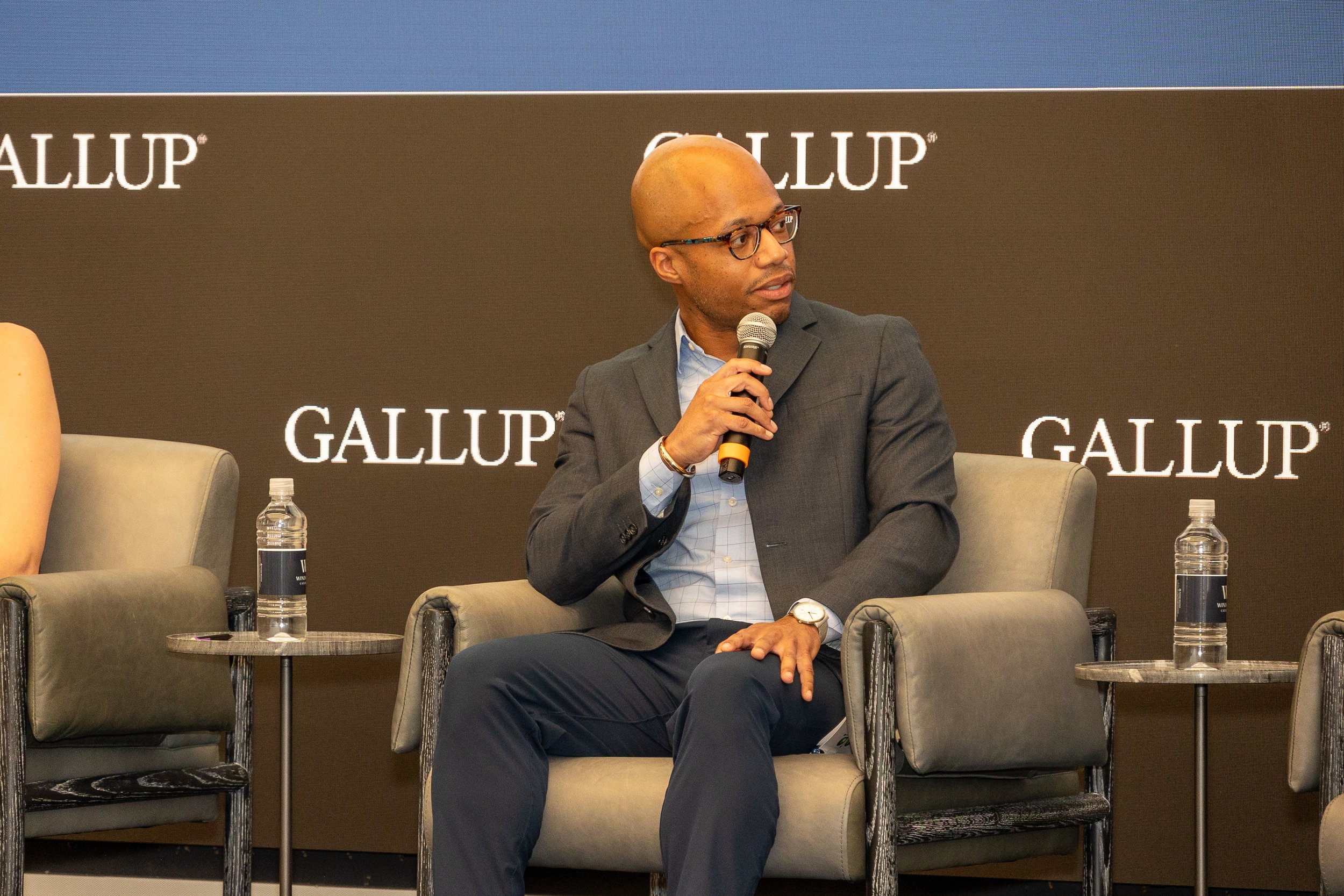

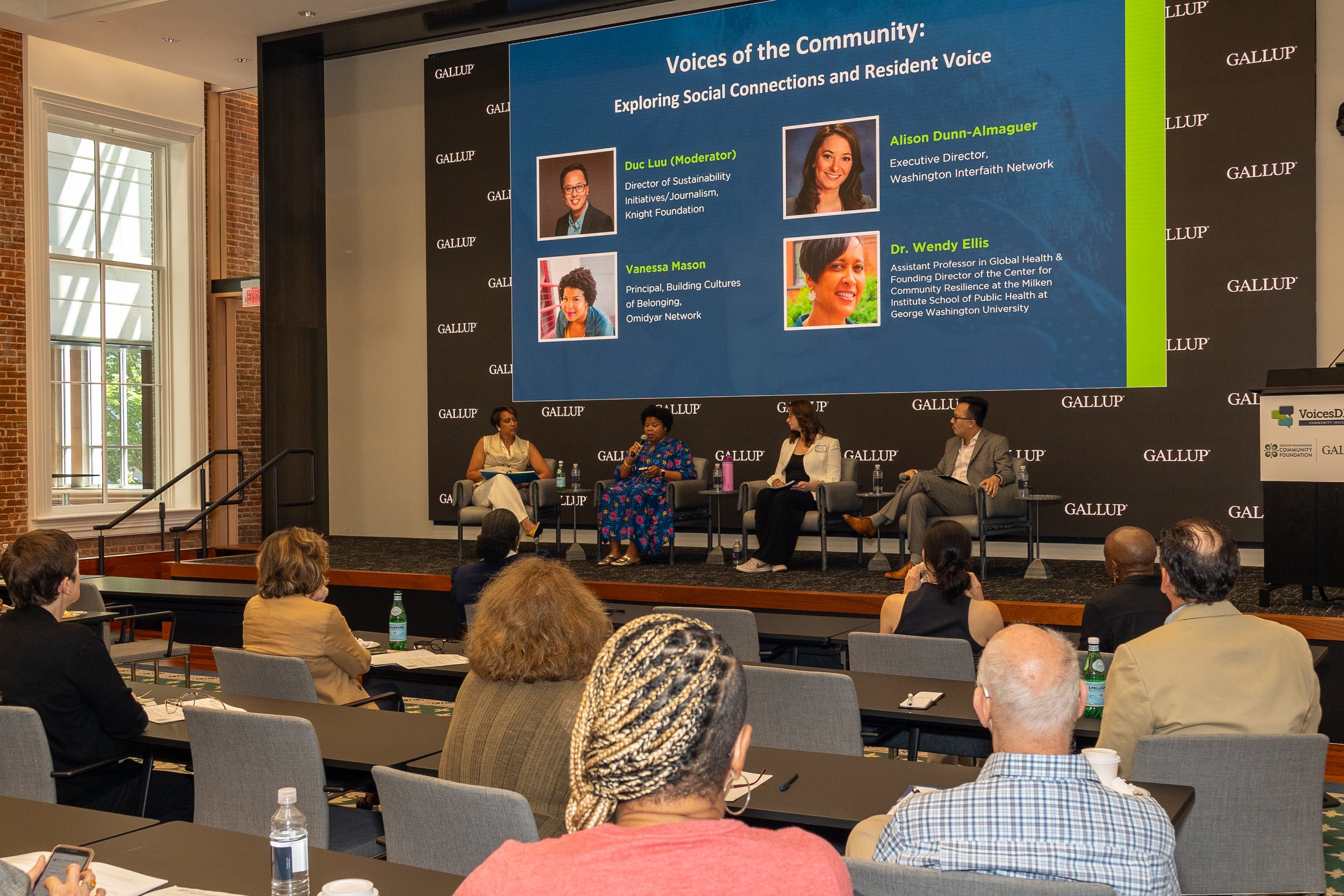

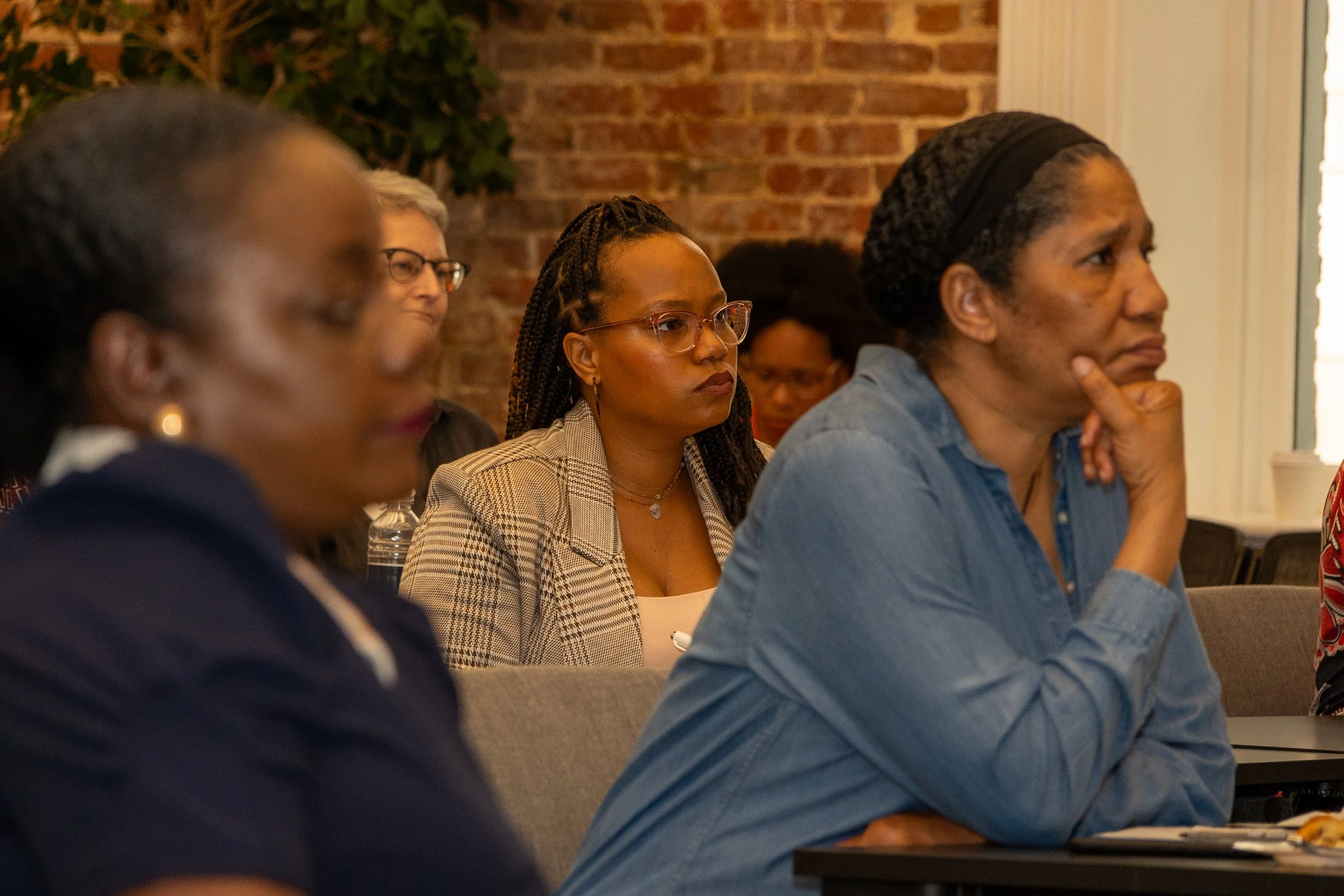
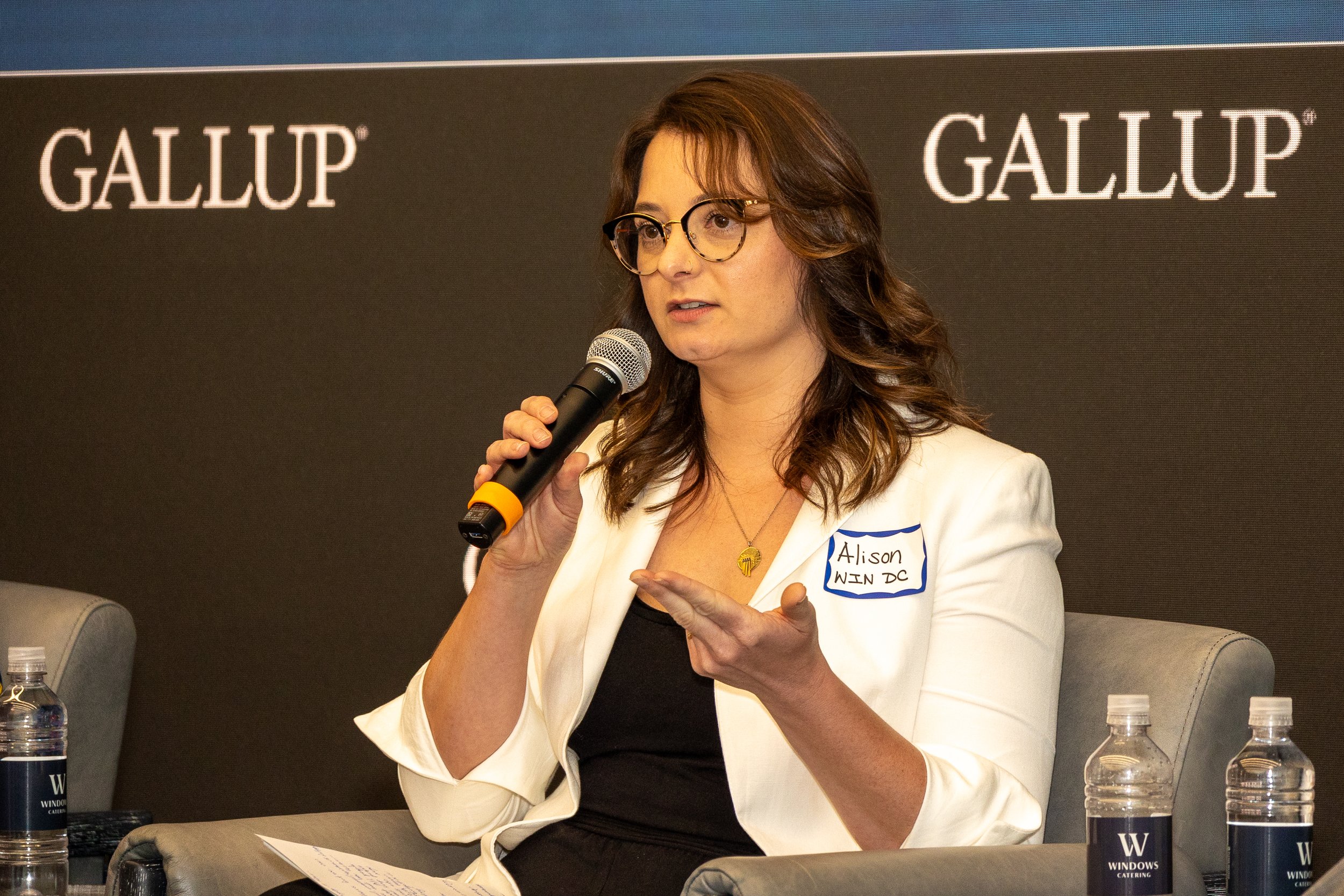
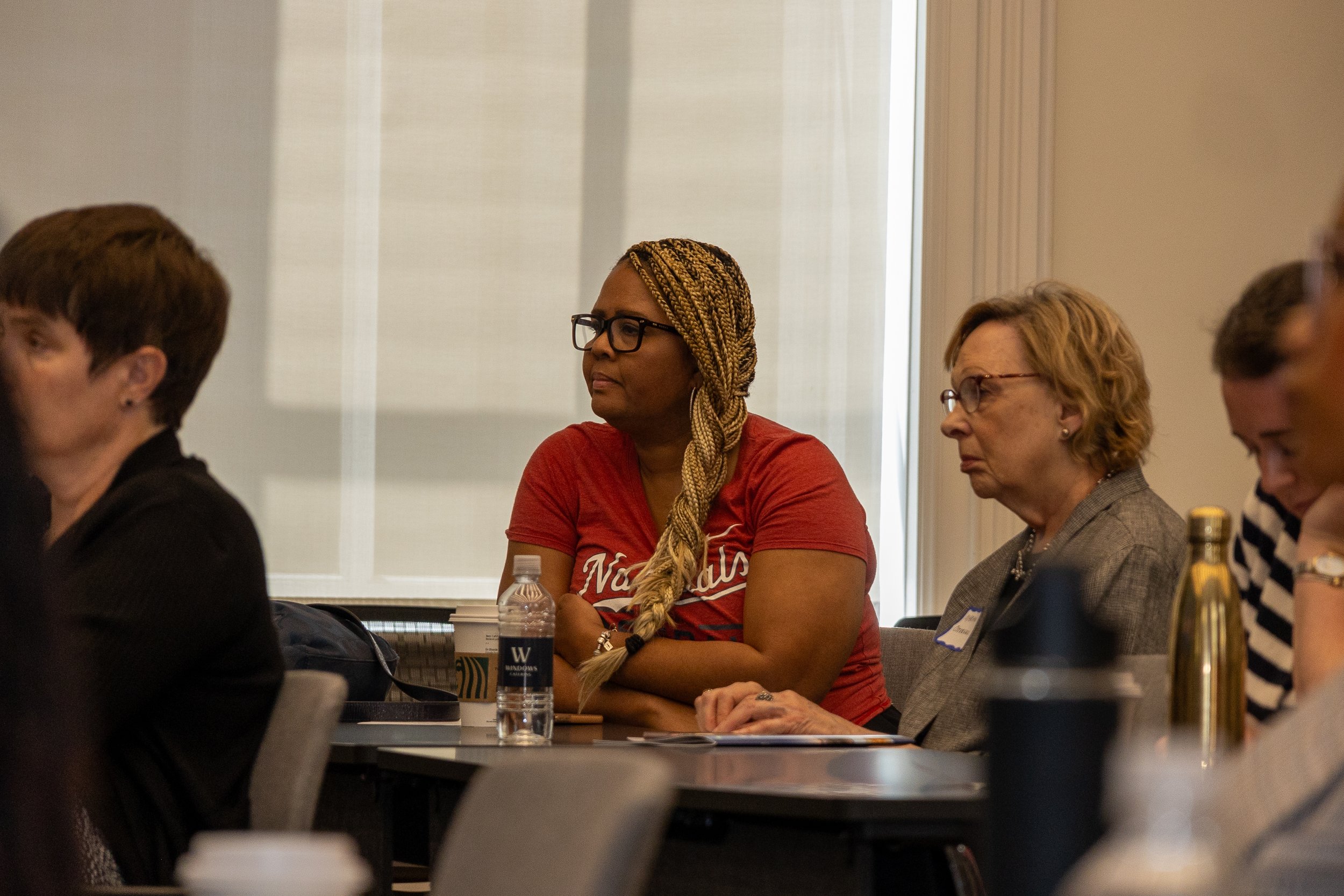




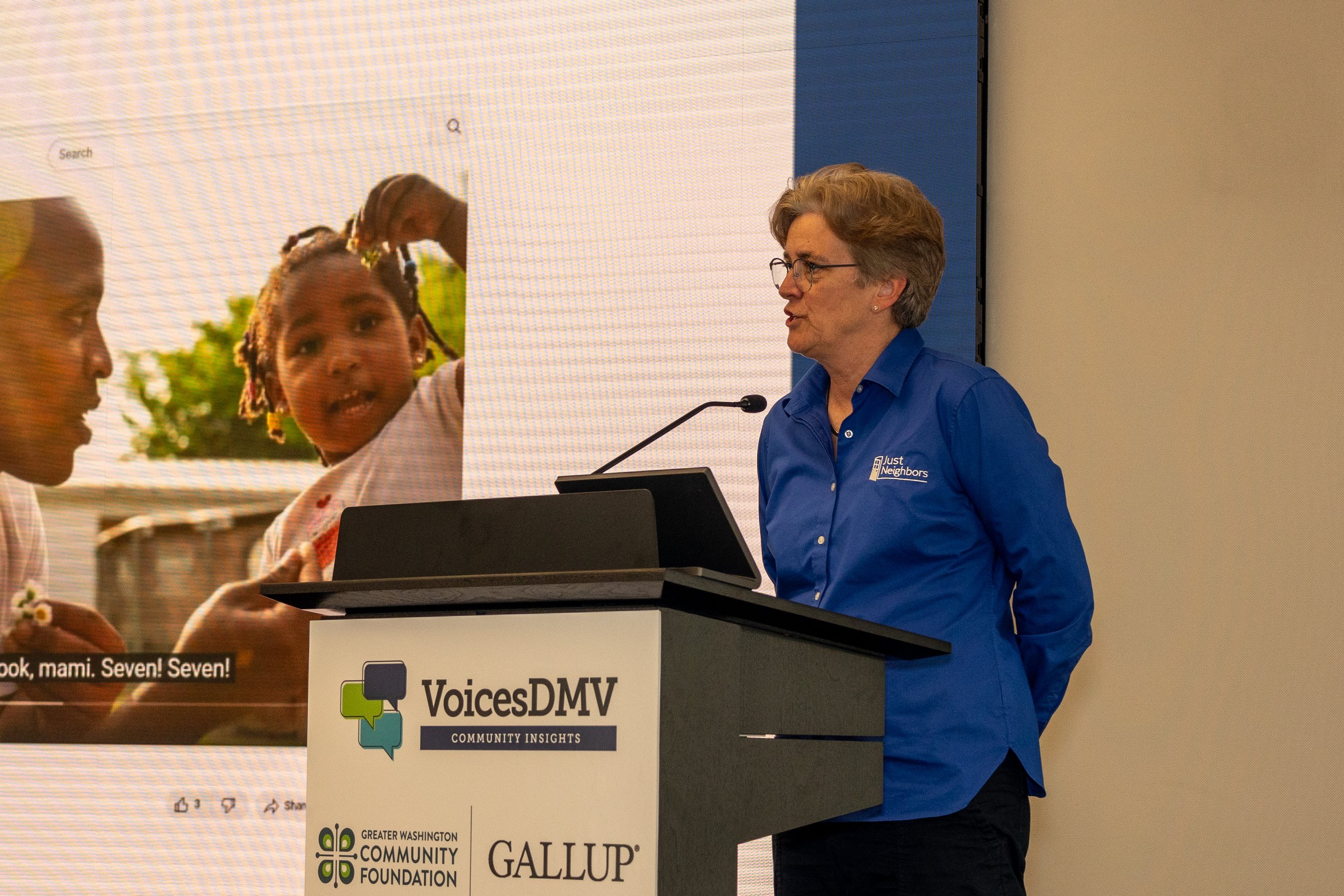


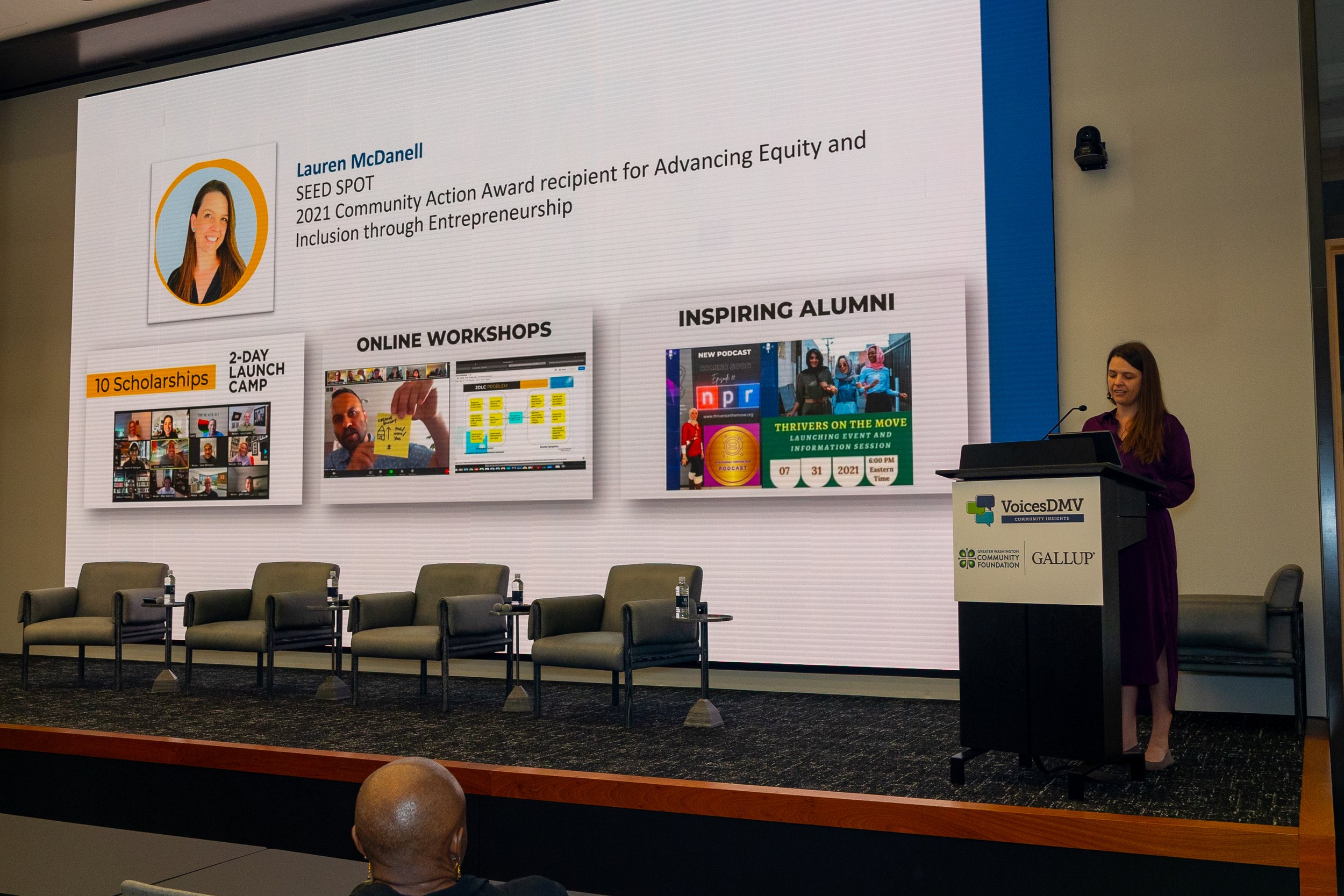
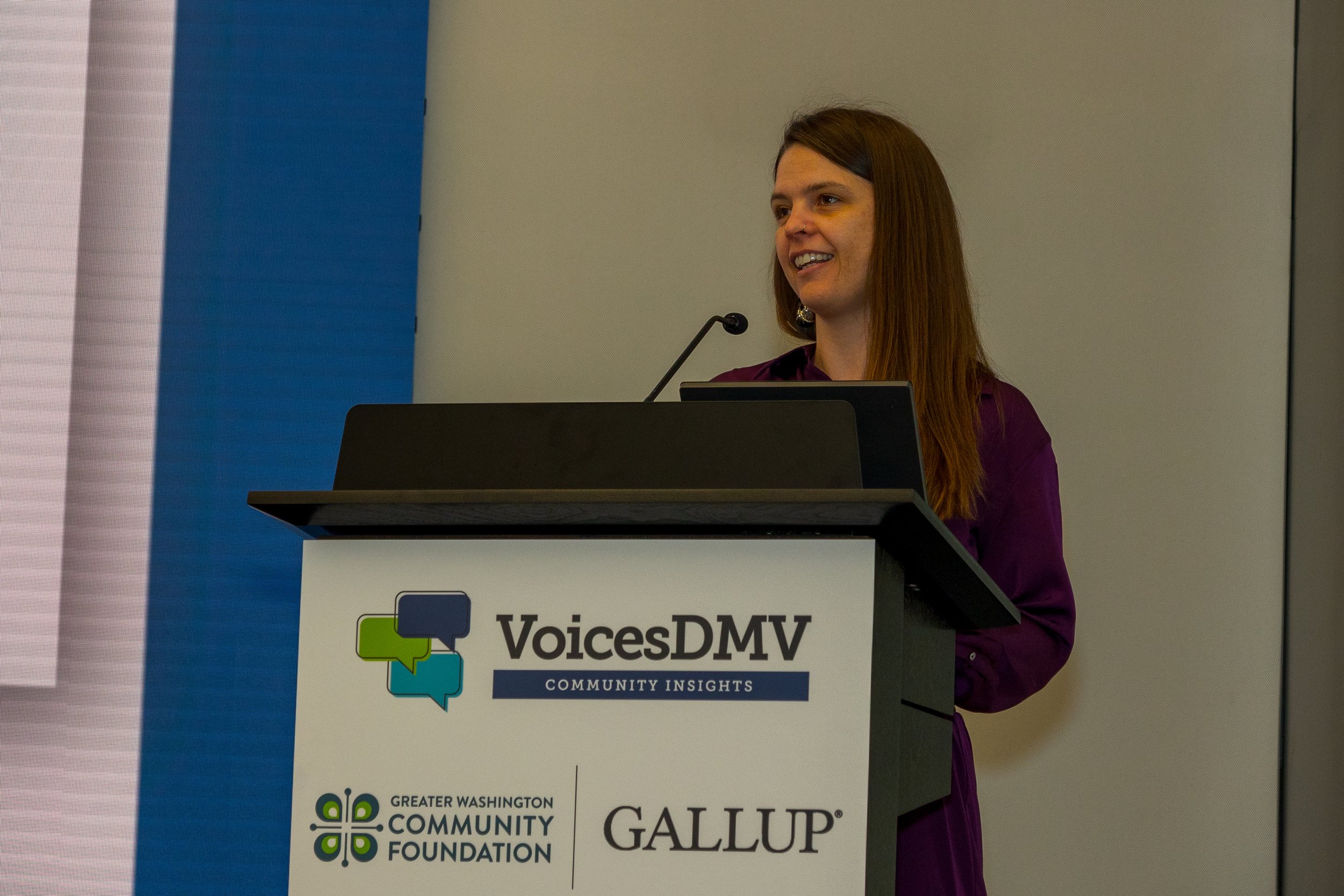








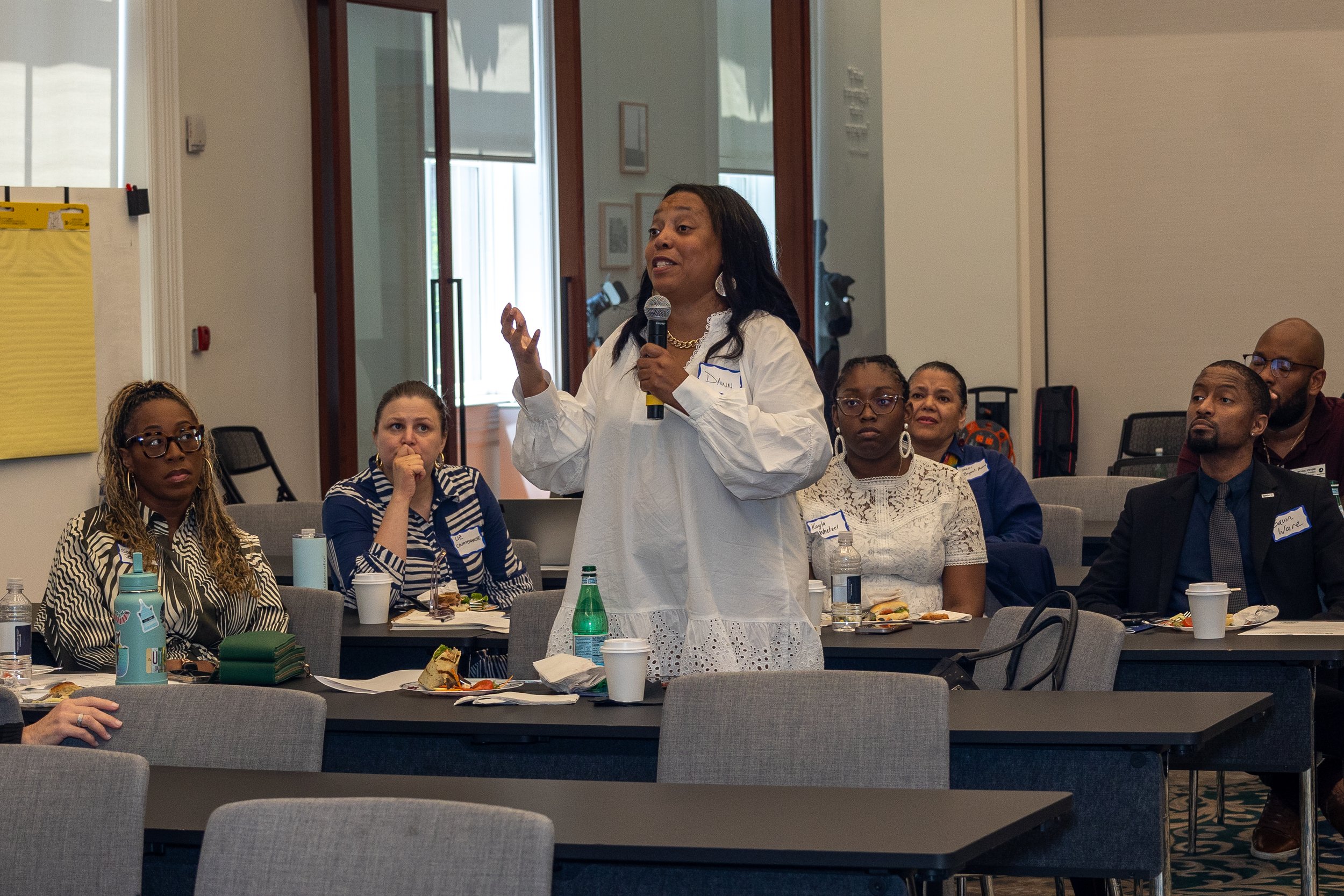


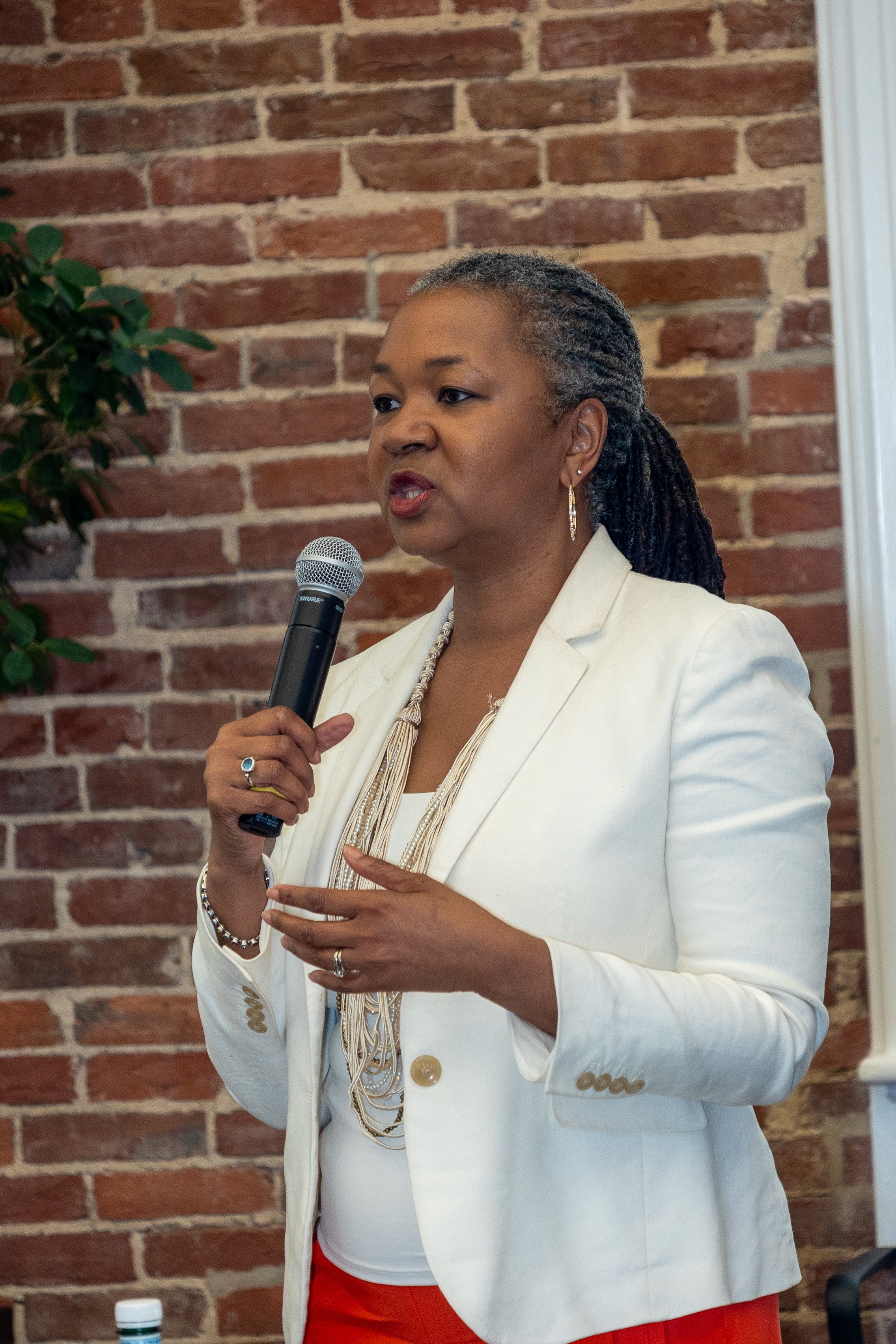
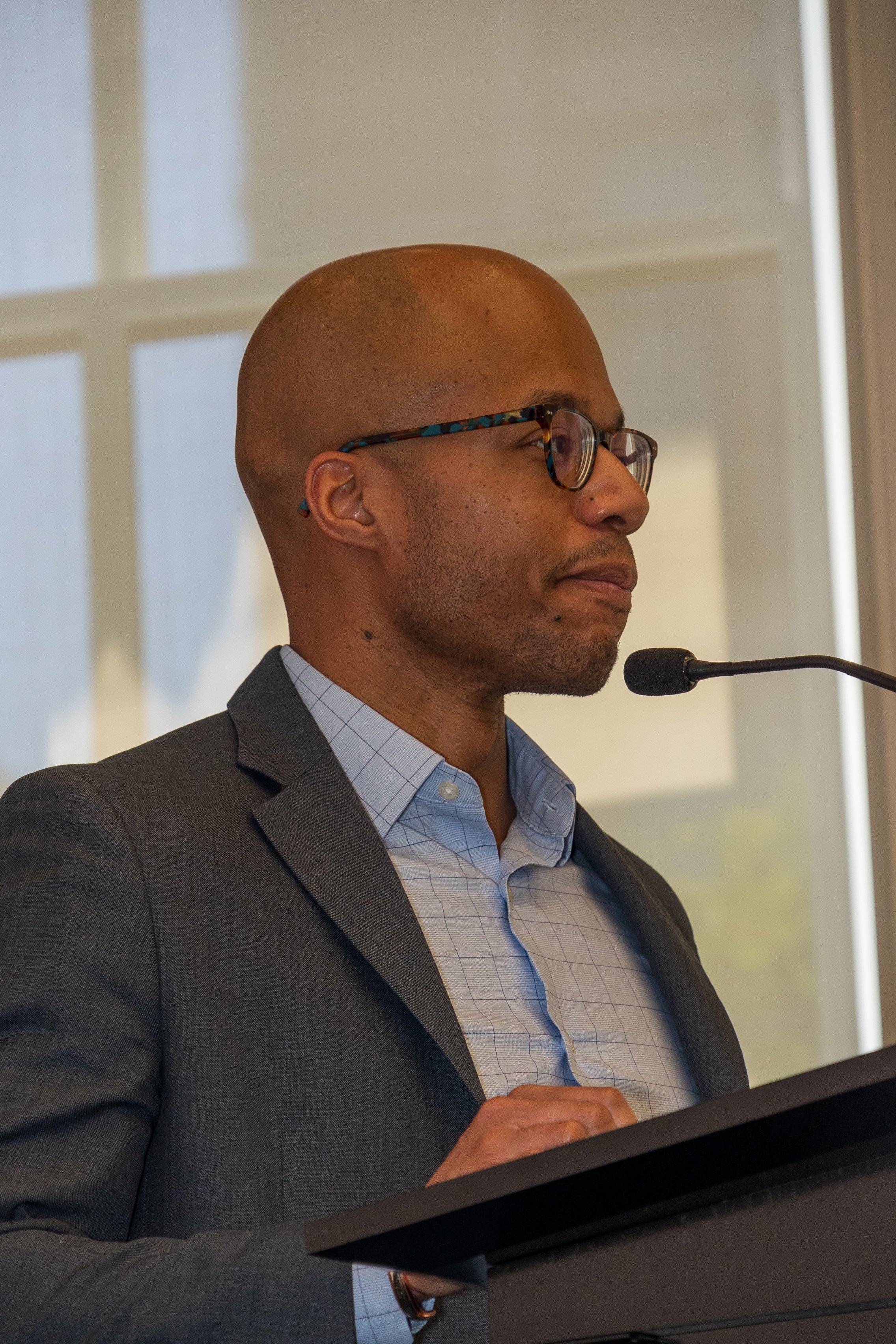
“I do this work because I believe that belonging cannot happen without power,” Allison Dunn-Almaguer, Executive Director of Washington Interfaith Network shared. “It’s about building agency – bringing people together across, race, religion, sexuality, and ethnicity to promote collective decision-making.”
Following the panel, Darius Graham, Managing Director of Community Investment, expressed The Community Foundation’s commitment to continue to build upon the community insights of the VoicesDMV Report by turning ideas into action. He shared information about the VoicesDMV Fellowship which will facilitate deeper engagement between The Community Foundation, residents, and organizations in priority areas to ensure authentic community voice is at the center of our work.
He also shared information about the 2024 VoicesDMV Community Action Awards. Started in 2020, the Community Action Awards provide microgrants to nonprofits working to make our region more equitable and inclusive by addressing issues and challenges highlighted in the Community Insights report.
Among the past Community Action Award Honorees were Erin McKenney, Executive Director of Just Neighbors and Lauren McDanell, VP of Strategy & Growth at SEED SPOT. Both recipients shared how the Community Action Awards allowed them to build a sense of belonging amongst the communities they serve.
“We hope that you leave this room today with a shared commitment to intentionality,” Tonia Wellons shard in conclusion. “May we glean what we can from this report and interrogate how it plays out in our communities and in the work that we do.”
“If we are to do this work effectively, it is imperative that we adapt to the needs of our community – we cannot keep doing the same things and expect different outcomes.”
“This report is only the beginning of our work – and we have a responsibility to our community to see that it’s carried out.”
Click here to see photos from the VoicesDMV Launch. For more information about VoicesDMV, visit www.voicesdmv.org

